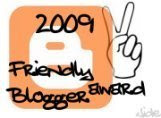Everyone has goals for their life. Small goals or significant goals. Hopes. Dreams. My aspirations are varied but one thing I’ve always fancied was to create a word or phrase that would be added to the lexicon. If the lads from Google can do it, why can’t I?
Naturally that ambition has led to a rampant curiosity about phrases and sayings that color our language indiscriminately. Where’d they come from? Who was the first to use them? And even though I understand the common usage of everyday phrases, I do pause at times and wonder, “What the heck does that mean?”
So I selected a few top-o-mind sayings, did a little research, and am sharing the information below. What better way to start than with…
“Coin a phrase.”
Meaning: To create a new phrase.
Origin: Coining, in the sense of creating, derives from the coining of money by stamping metal with a die (permanent impression). In the 16th century the ‘coining’ of words was often referred to. Though Shakespeare made reference to coining words in 1607, it wasn’t until the l9th century that ‘coin a phrase’ originated in Wisconsin. And you thought their only heritage was cheese.
“Spill the beans.”
Meaning: To divulge a secret, especially to do so inadvertently or maliciously.
Origin: Thought to have roots in ancient Greece where voting systems often consisted of using white beans or black beans and the decision had to be unanimous. If your color was shown early, then the cat was out of the bag….oops, there’s another.
“Behind the eight ball.”
Meaning: A difficult position from which it is unlikely one can escape.
Origin: From billiards, the game is forfeited if a player’s cue ball hits the eight ball first. A ‘behind the eight ball’ position leaves a player in imminent danger of losing. Earliest citation came from an Ohio newspaper in 1916. I could never remember if the eight ball is a good thing or a bad thing to be “behind.” Now I know.
“As easy as pie.”
Meaning: Very easy.
Origin: From the 19th century, pie was used to denote pleasantry and ease, i.e., nice as pie. The earliest example of the actual phrase ‘as easy as pie’ comes from a comic story in the Rhode Island newspaper in 1887. Obviously it caught on.
“Push the envelope.”
Meaning: To attempt to extend the current limits of performance; to innovate, or go beyond commonly accepted boundaries.
Origin: Originally derived from a mathematical context that refers to limiting factors; made popular by Tom Wolfe in his book, The Right Stuff. To paraphrase, “..pushing the outside of the envelope…seemed to be the great challenge of the flight test.” I feel better knowing this cause I never understood the reference.
“Dressed to the nines.”
Meaning: Dressed flamboyantly or smartly.
Origin: From the 18th century where phrases “to the nines” or “to the nine” were used to indicate perfection – the highest standards. Use of nines is thought to derive from the nine muses in mythology and the nine worthies in the bible. I think there is a bit of serendipity in that I looked this up on the day Mr. Blackwell passed away.
On a more personal note, my grandmother had a saying that she used quite frequently and it’s one I never heard anyone else say.
“Well, I’ll swan”.
I’ve always wondered about its origin. Was it something she made up (you know, like Rachael Ray says “Oh my gravy!”)? Or was it passed down through kinfolk. (If you’re going to say, “I’ll swan” then you’ve got “kinfolk”). I find it coming to my mind every now and then as a reflex when surprised or bewildered. That’s pretty much how my grandmother used it.
In doing research for this post, I popped the phrase into Google. Gosh durn. A couple references actually came up. While no one had distinctive information about it’s origin, they did agree that it had southern influences (my grandmother WAS from southern Illinois), it was used to convey mild surprise, ala “Well, I’ll be”, and it was a way to let loose a tepid curse without actually swearing.
For now a few riddles are solved. Somehow I feel more empowered knowing this. More than ever it gives fuel to my desire to coin a phrase of my own. But in my current self-altered state (Let it be…..Ommmm), I know that it will bubble up when I least expect it. And then forty, fifty, sixty years from now, someone will be plugging it into a 22nd century search engine and finding my name. How cool would that be!
What phases do you most like, or which ones give you pause?
Subscribe to:
Post Comments (Atom)













No comments:
Post a Comment